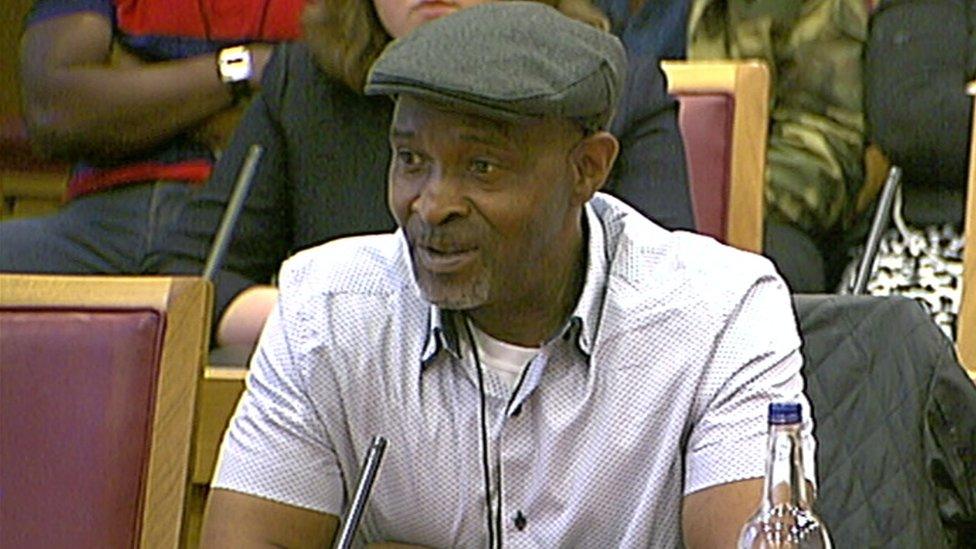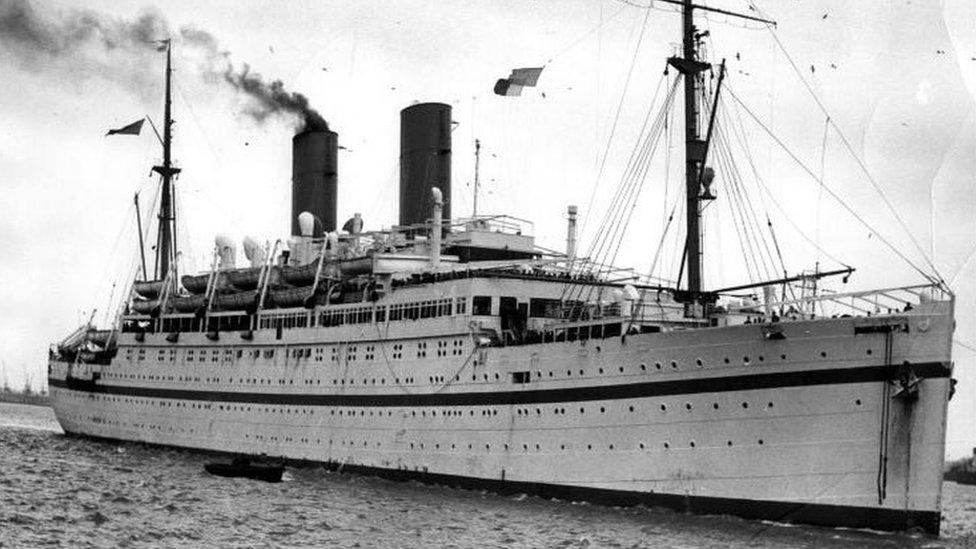Windrush anniversary celebrated at Westminster Abbey
- Published
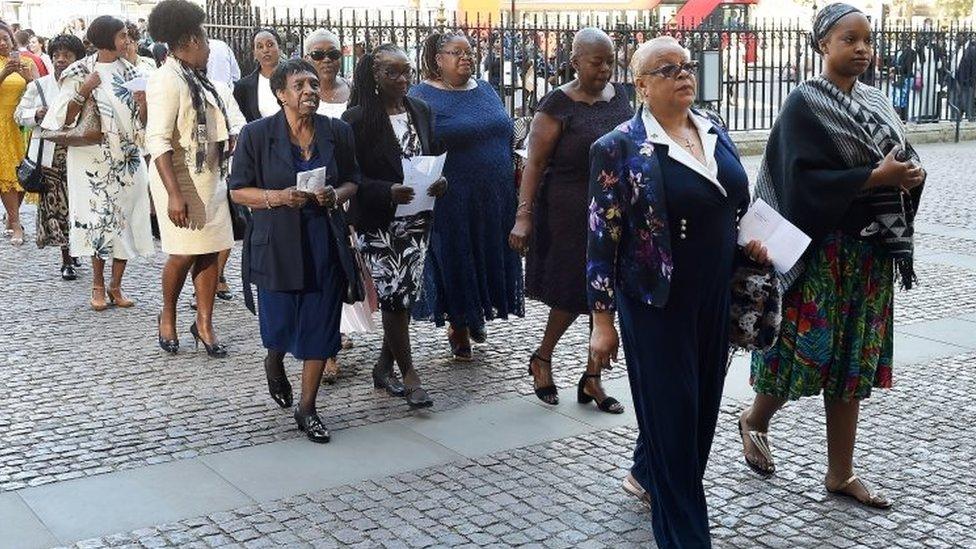
Windrush generation members and their families were invited to the Westminster Abbey service
More than 2,000 people attended a thanksgiving service marking 70 years since the arrival of Caribbean migrants on the Empire Windrush ship to the UK.
Hymns including Amazing Grace were played on steel drums as guests, including families of the Windrush generation, entered Westminster Abbey.
The migrants were among the first to be recruited to rebuild post-war Britain.
But there continues to be concern over a scandal which saw some of the generation wrongly face deportation.
As the music played in the abbey, Baroness Floella Benjamin was applauded as she briefly danced in the nave.
The Liberal Democrat peer and patron of the Windrush Foundation said that she felt "joy", adding: "I was floating, like a bird, free."
Prime Minister Theresa May, Home Secretary Sajid Javid and London Mayor Sadiq Khan attended the service, along with shadow home secretary Diane Abbott.
Among the guests was Baroness Doreen Lawrence, mother of murdered black teenager Stephen.

At the scene
By Helena Lee, BBC News
Under the warm June sun the guests, more than 2,000 of them, queued outside the abbey ahead of the service.
They shared stories with each other. They wanted to celebrate.
Many of them were families of the Windrush generation.
Karen Gibson's mother came to Britain from Guyana in 1962.
She said her mother heard stories of "gold on the streets" of the UK.
There was a heart-warming moment too.
A handshake between two men, in their nineties, who unknown to each other, had both been on the Empire Windrush ship 70 years ago.

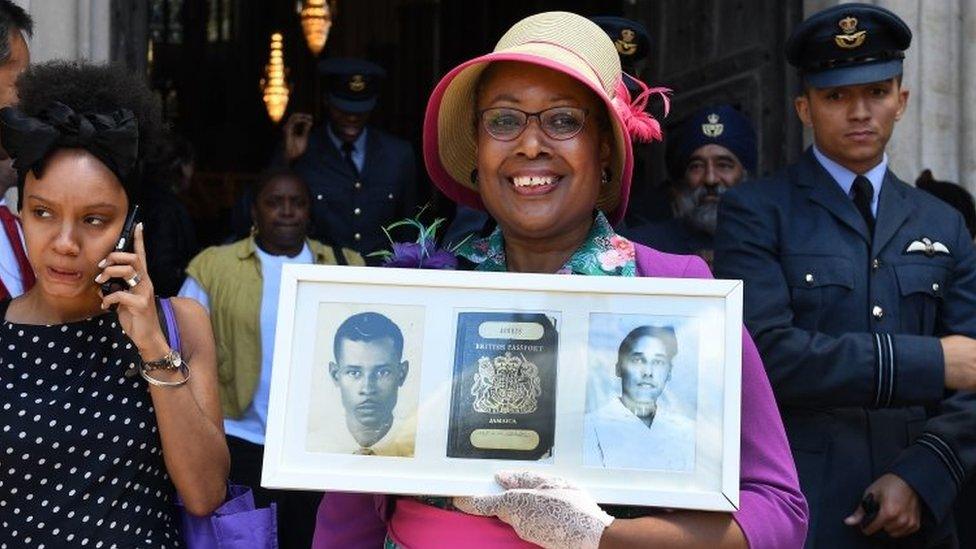
Andria Marsh, 63, held up photographs of her parents and her original British passport after the Windrush service
At the service, a short drama telling the story of how Caribbean migrants were invited to "The Motherland" to help rebuild post-war Britain was performed by actors.
Addressing the congregation, the Reverend Canon Joel Edwards said: "Settling down hasn't been plain sailing.
"The children of Windrush have experienced over-representation in Britain's prisons and mental health institutions. Knife crimes.
"Underachievement in education and the job market. Settlement has meant racism, sometimes too much policing and not enough protection. And Stephen Lawrence."
But he added: "Windrush resilience arises, supremely."
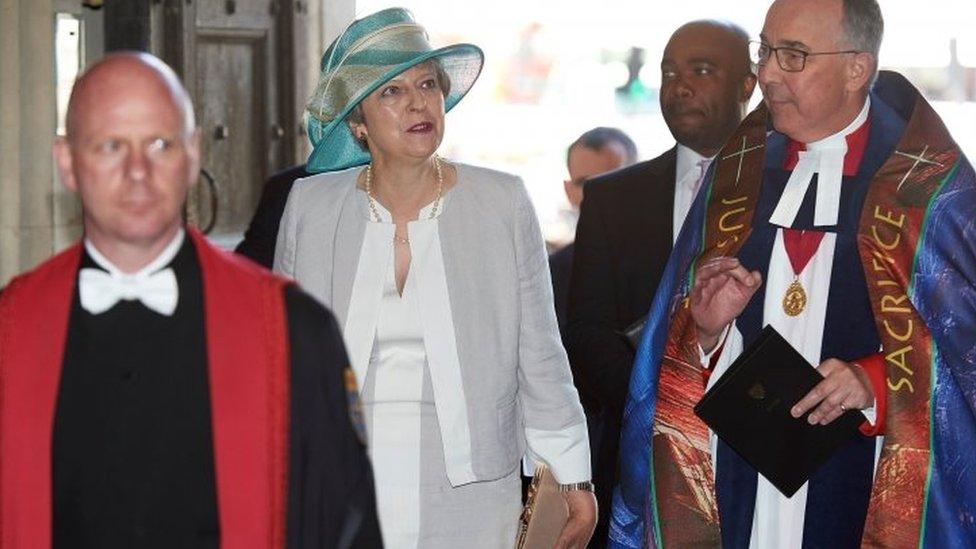
The Dean of Westminster (right) wore a robe decorated with a photo montage of aspects of black history in Britain
He described the Windrush as having "gifted" Britain with leaders in the worlds of politics, business, education, music and sport and acknowledged the influence of the Caribbean on British cuisine, including "rice and peas, jerk chicken and Levi Roots sauce in our supermarkets".
Mr Edwards also referenced the scandal that has seen some Windrush members wrongly face deportation.
He said: "In recent months the word 'Windrush' has evoked a great deal of emotion and even anger across our political landscape. In this service of thanksgiving, Windrush means more than migration."
The service included the first performance of a specially composed anthem entitled Psalm To Windrush: For The Brave And Ingenious.
The Very Rev John Hall, Dean of Westminster, wore a robe decorated with a photo montage of aspects of black history in Britain since the arrival of Windrush.
John Richards, 92, who came to Britain on the Windrush aged 21, said the service was "great".
"It brings back memories, yes, but I'm too old for the emotion," he said.
Alford Gardner, a member of the Windrush generation, has lived in Leeds most of his life, but said that was not his intention when he arrived.
The 92-year-old said: "The plan was to come to England, get a good job, work for about five years, go back... but it wasn't to be.
"Within five years I had started a family and married. I had bought me house, working hard and settled down."
Mr Khan said it was a "moving" service in honour of a generation that "contributes so much to our capital".
Allow X content?
This article contains content provided by X. We ask for your permission before anything is loaded, as they may be using cookies and other technologies. You may want to read X’s cookie policy, external and privacy policy, external before accepting. To view this content choose ‘accept and continue’.

But Glenda Ceasar, who was born in Dominica in the 1960s, said she never got a British passport and lost her job recently because she could not prove her legal status.
She said: "So many years down the line... we're faced with this.
"The ship to me, the Windrush, it seems as if it was... we were just slaves being brought over here to be punished later on in life. That's the way that I feel."
Nearly 500 Caribbean migrants from countries including Jamaica, Bermuda and Trinidad exited the Windrush on 22 June 1948 when it docked at Tilbury in Essex.
They had applied to job adverts after World War II with the hope of finding long-term employment in the UK, having gained a type of citizenship under the British Nationality Act of 1948.
What was life like for first-generation Windrush migrants?
The Westminster Abbey service commemorates the contribution the migrants and their families have made to the UK.
Meanwhile, a celebration of Caribbean culture marked the anniversary at Tilbury Docks.
The government has also announced Baroness Benjamin is to lead a commemoration committee overseeing the creation of a "fitting legacy" to the Windrush generation.
A statue celebrating their achievements is among the ideas for the permanent tribute.
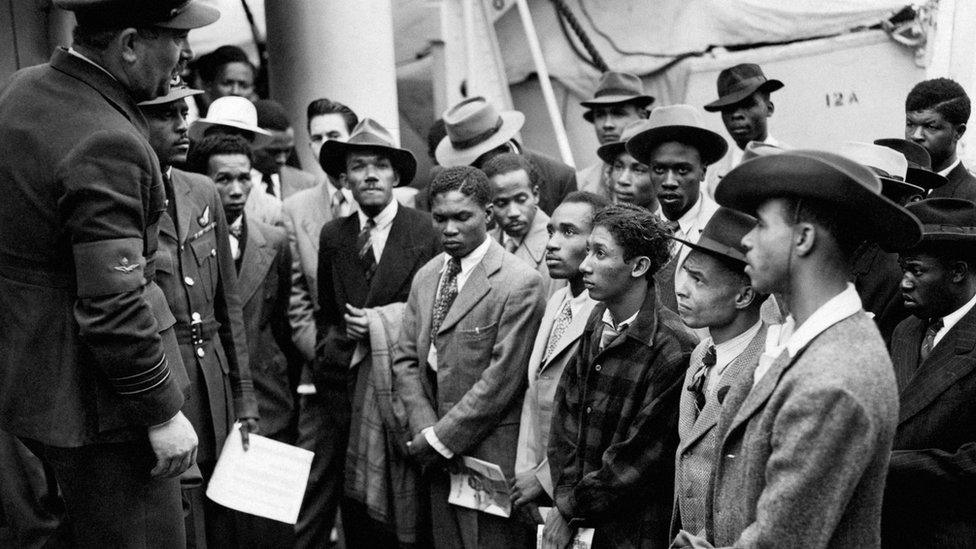
Nearly 500 Caribbean immigrants were on the Empire Windrush when it arrived 70 years ago
Baroness Benjamin, a former children's television presenter and Lib Dem peer, was born in Trinidad but emigrated to the UK with her family in 1960.
She said: "This a significant step in recognising the contribution made to Britain by Caribbean people and this committee will make sure the work and sacrifices of the Windrush pioneers will live on in the hearts and minds of future generations."
Three Windrush generation migrants
The right to remain in the UK for Commonwealth migrants who arrived before 1973 was supposed to be legally guaranteed.
But it emerged this year that some migrants from the Windrush generation - many of them who arrived as children - had faced deportation.
They were being refused healthcare and access to jobs because they did not have the paperwork to prove their status following a tightening of immigration rules in 2014.
The government has since apologised for the crisis and says a dedicated taskforce has now provided documentation to over 2,000 people demonstrating their right to live in the UK.
Earlier this week, the government announced an annual Windrush Day would take place.
- Published22 June 2018
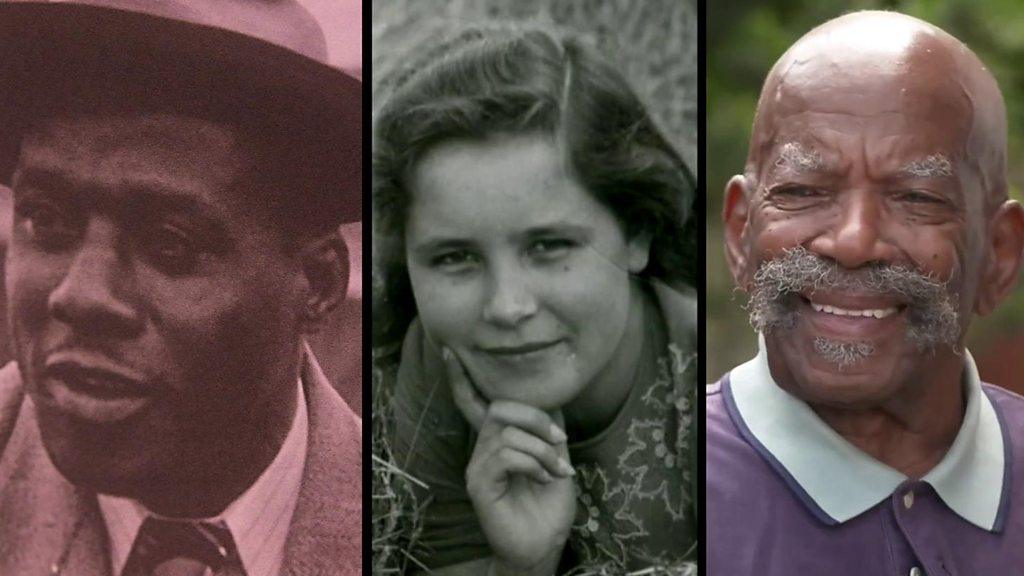
- Published22 June 2018
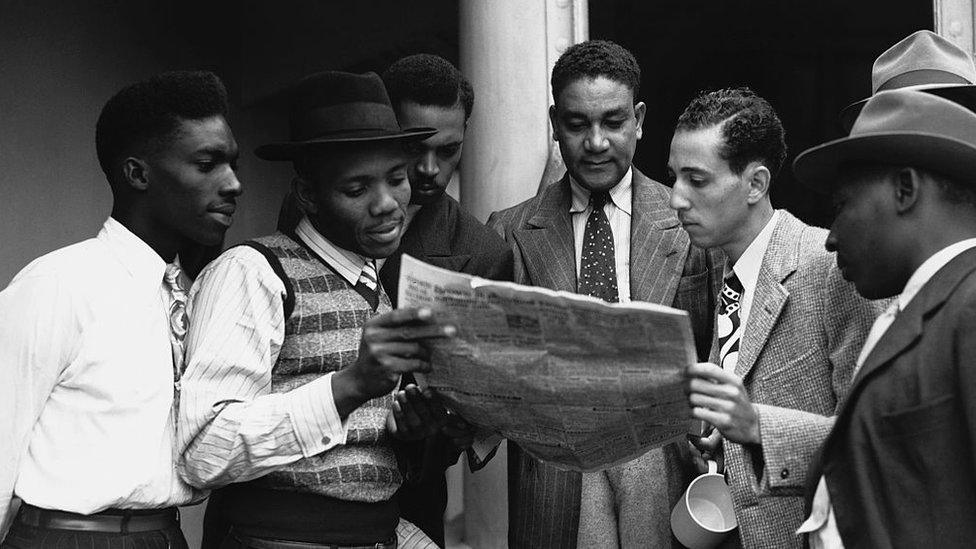
- Published22 June 2018
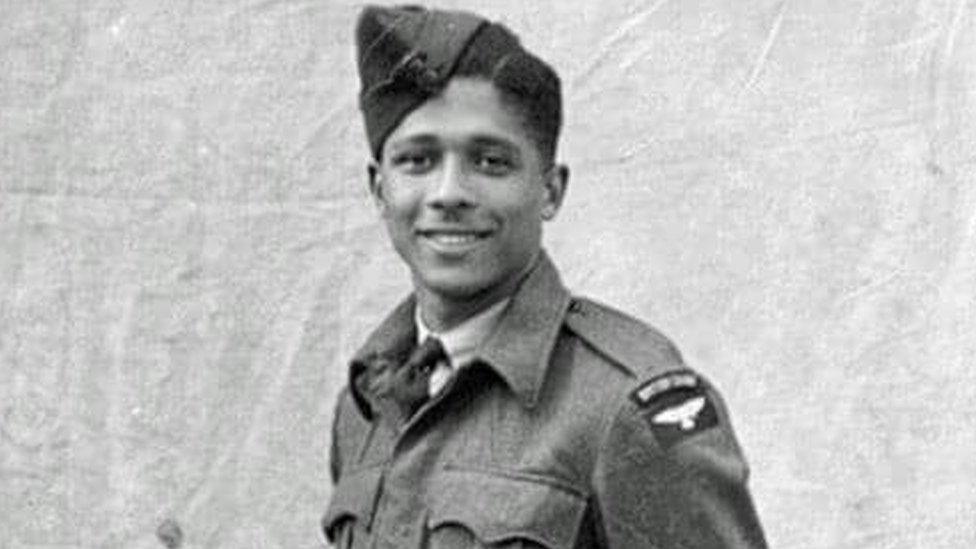
- Published16 May 2018
